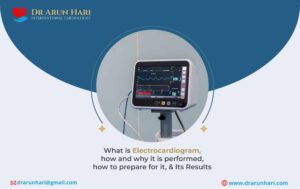An interventional cardiologist is a medical doctor who specializes in the diagnosis and treatment of heart conditions. He or she is trained in both cardiology (the study of the heart) and interventional procedures (procedures used to treat heart conditions). An interventional cardiologist typically provides care for patients who have heart disease or are at risk for developing heart disease. He or she works closely with other members of the healthcare team, such as general physicians, heart surgeons, and other specialists, to provide the best possible care for each patient.
The Role of an Interventional Cardiologist!
The role of an interventional cardiologist is to diagnose and treat heart conditions using the least invasive means possible. In many cases, this means using catheters (thin tubes) to access the heart without making a large incision in the chest. Interventional cardiologists perform a wide range of procedures. These include angioplasty (widening of a blocked artery), stenting (placement of a metal tube to keep an artery open), and cardiac catheterization (insertion of a catheter into the heart to diagnose or treat a heart condition). In addition to providing care for patients with heart disease, interventional cardiologists also play an important role in preventive care. They work with patients to help them understand their risk factors for heart disease and develop a plan to reduce their risk. They also provide education on healthy lifestyle choices, such as maintaining a healthy weight, eating a healthy diet, and getting regular exercise.
Difference Between An Interventional Cardiologist And A Cardiologist!
An interventional cardiologist specializes in performing minimally-invasive procedures to diagnose and treat various heart conditions where doctor cannot do open surgery. He performs these procedures by using small, flexible tubes called catheters. Some of the procedures that an interventional cardiologist can choose to perform include:
- Angioplasty – A procedure to open up the blocked arteries
- Stenting – A procedure to prop open blocked arteries by placing a stent
- Atherectomy – A procedure to remove plaque from arteries
- Cardiac Ablation – A procedure to destroy tissue that is causing abnormal heart rhythms
Interventional cardiologists may also perform other procedures, such as placing implantable cardioverter defibrillators (ICDs) and pacemakers. Cardiologists, on the other hand, focus on the diagnosis and treatment of heart conditions. They are experts in outlining the treatment of heart conditions. They use medications, lifestyle changes, and/or an open surgery if needed.
Dr. Arun – Highly Skilled, Experienced and Certified Doctor!
So, if you have heart problems, you may see a cardiologist or an interventional cardiologist. The best person to see will depend on your individual situation. If someone is struggling with heart disease or is at risk, consulting Dr. Arun would help. He is a certified interventional cardiologist. The doctor performs minimally-invasive interventional cardiac procedures with expertise. He can help improve your overall heart health and provide all means possible for achieving a better quality of life.






